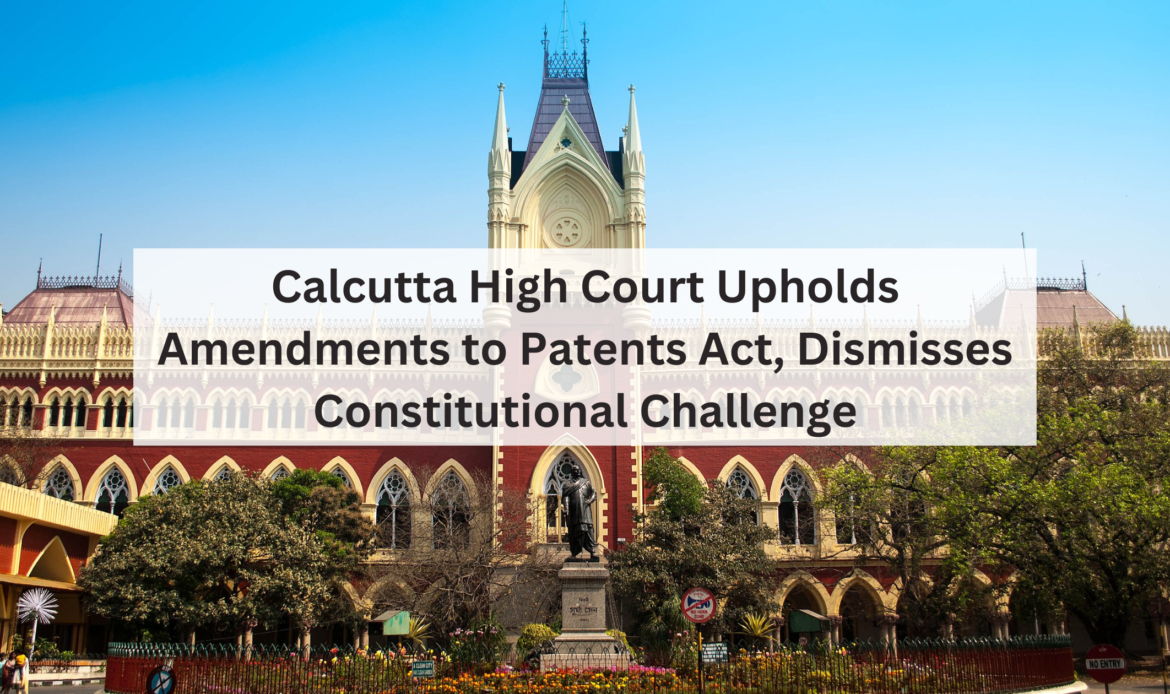The Calcutta High Court recently delivered an important judgment. It dismissed a constitutional challenge against amendments to Patents Act (Section 53). This upholds the validity of the provision that sets the term of a patent at 20 years from the date of filing an application.
Justice Sabyasachi Bhattacharyya presided over the case of Gunjan Sinha @ Kanishk Sinha v. Union of India. The petitioner had contested the constitutional validity of the amendment, which was introduced in 2002.
This amendment standardized the term of patents to 20 years from the date of filing. It has replaced the previous durations of 5, 7, and 14 years under different amendments.
Court’s Rationale and Decision
Justice Bhattacharyya’s ruling emphasized that the extended term aligns with international agreements. Those agreements include the Trade-Related Aspects of Intellectual Property Rights (TRIPS) Agreement.
The court held that the legislature had the authority to extend the patent term uniformly. It finds no irrationality in this exercise of legislative discretion.
The judgment clarified that patents are statutory rights, not fundamental constitutional guarantees. Therefore, the legislature can selectively bestow rights at different stages of the patent process without violating constitutional principles.
Legal Analysis
The challenge against Section 53(1) contended that the term of a patent should start upon grant, not upon application. However, the court emphasized India’s commitment to the TRIPS Agreement. That agreement mandates a patent term not ending before 20 years from the filing date.
The court noted that the Parliament’s decision to fix the term at precisely 20 years from filing was consistent with TRIPS. It also mentioned that it was within its legislative competence.
Regarding additional privileges conferred during the patent application process (Section 11-A(7)), the court found these privileges to be reasonable and within legislative discretion. It allows limited rights during the period between application and patent grant.
The judgment reinforced the legislative intent behind the Patents Act amendments, particularly aligning with international obligations. It dismissed the constitutional challenge against Section 53 amendments. This further affirms the 20-year patent term from the application date as a lawful exercise of legislative authority.
Advocates representing both parties were present during the proceedings. Kanishk Sinha appeared as a party-in-person, while Lipika Das Sinha intervened. Advocates Sukumar Bhattacharyya and Avinash Kankani represented the respondents.
Final Words
The court’s decision upholding the amendments to Patents Act is revolutionizing. It’s grounded in legal principles and international commitments. This decision affirms the continuity and stability of India’s patent regime under the amended Patents Act. This ruling serves as a significant clarification of patent rights and the legislative framework governing intellectual property in India. Stay tuned at Kshetry and Associates for more such news.

